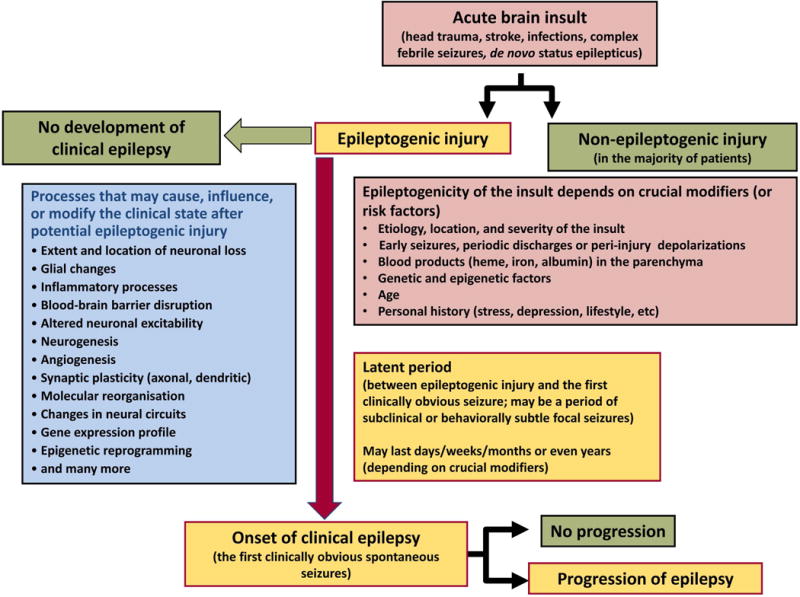Fig. 1. Epileptogenic processes and risk factors involved in development of epilepsy after acute brain insults: a conceptual view.

Possibly depending on crucial modifiers or risk factors, the same brain injury can be epileptogenic or not. In the majority of patients, brain insults do not cause epilepsy as discussed in the text. Furthermore, as illustrated in the figure, not all epileptogenic processes, once initiated, result in epilepsy, i.e. complete their course to clinically obvious disease. The term epileptogenesis includes processes that render the brain susceptible to spontaneous recurrent seizures and processes that intensify seizures and make them more refractory to therapy (progression). During epileptogenesis, multiple brain alterations occur, including altered excitability of neurons and/or neuronal circuits, activation of microglia, astrocyte dysfunction, alterations in expression and function of receptors and ion channels (in part recapitulating ontogenesis), loss of neurons, neurogenesis, axonal and dendritic sprouting, gliosis, inflammatory processes, and more. It is important to note that some of these alterations may be related to post-injury repair or recovery and not suited as targets to halt the epileptogenic process. The figure has been modified from previous versions.3,15,276
